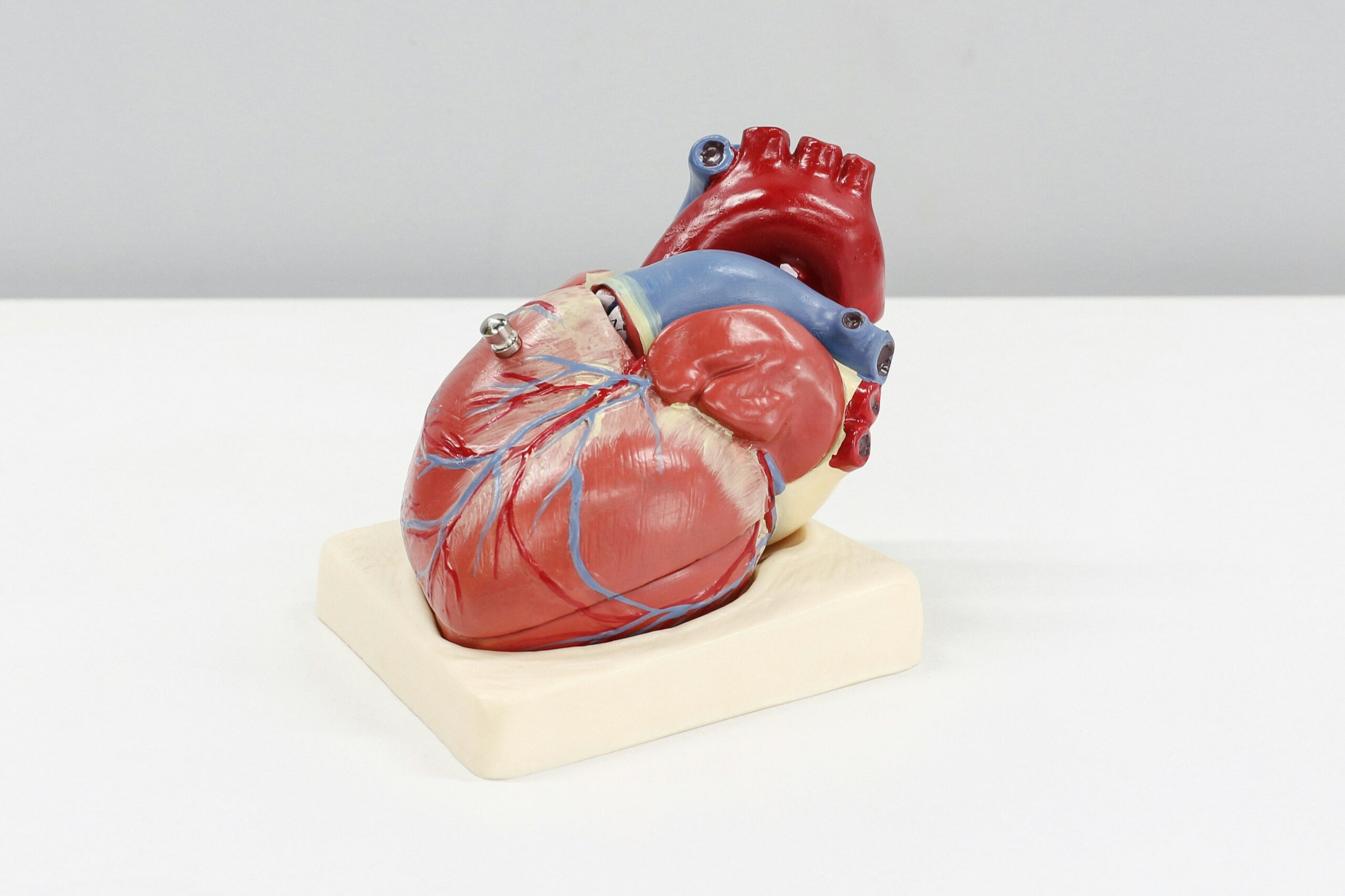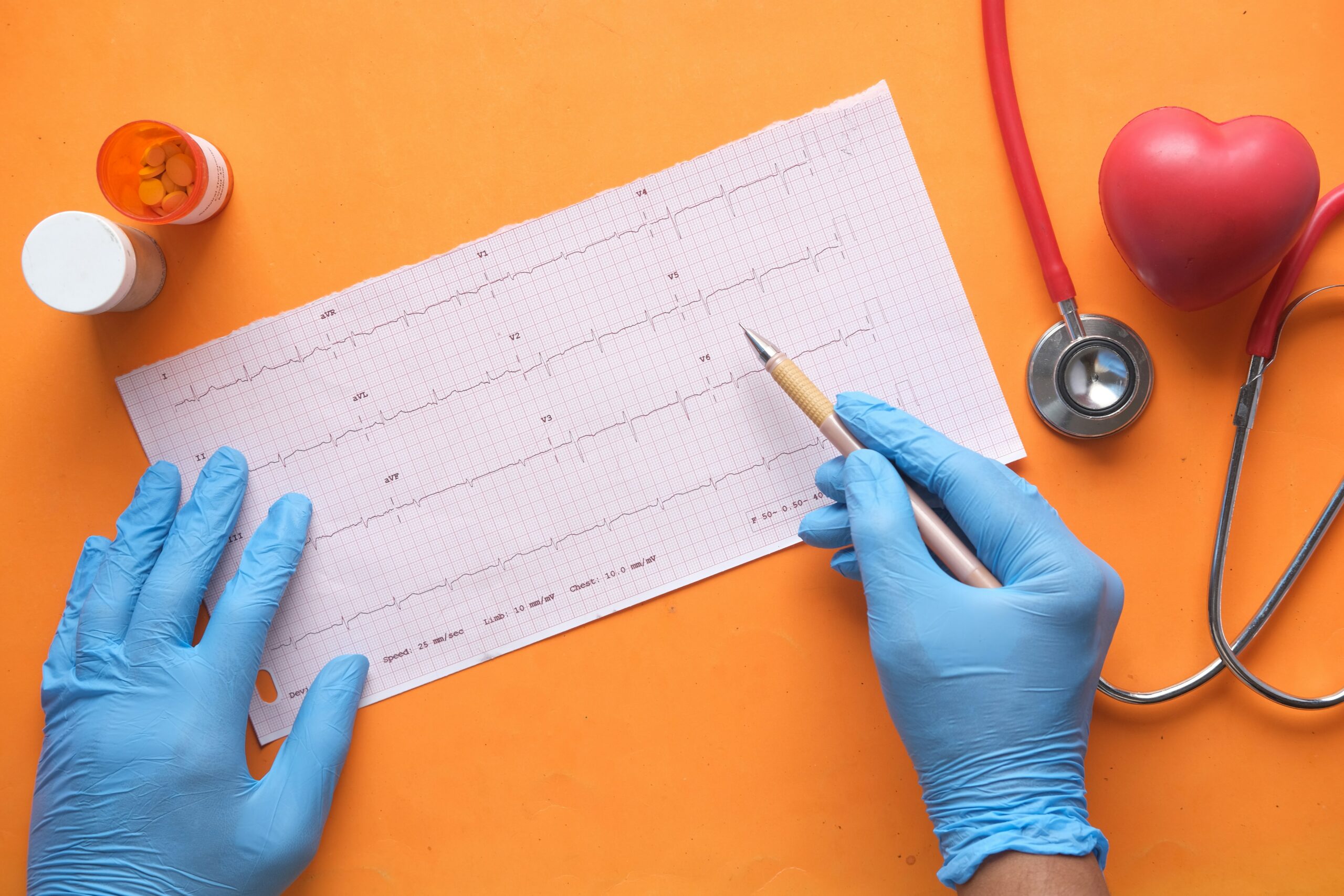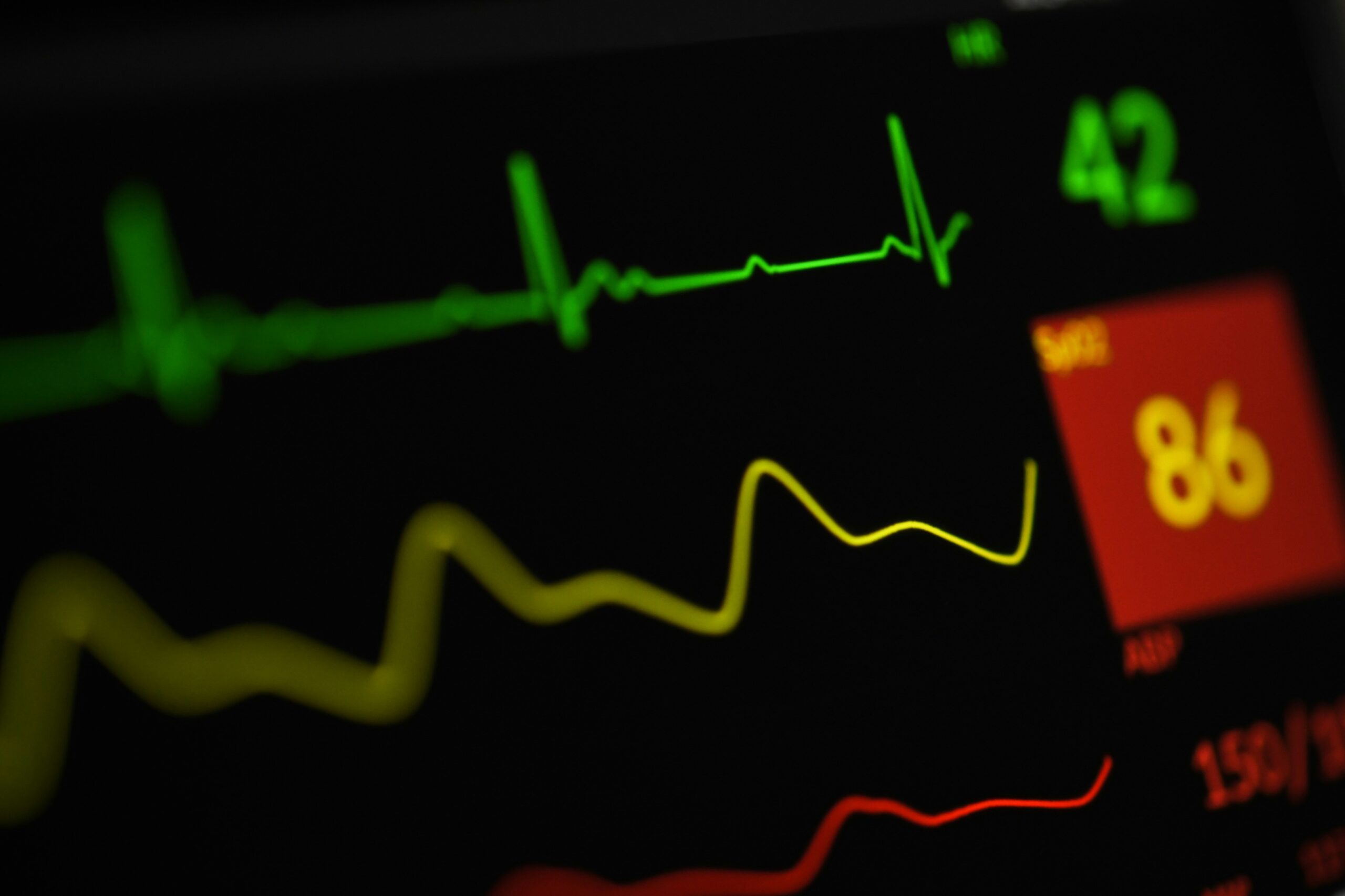Heart disease is a pathological condition within the cardiovascular system. It includes the heart and its blood vessels. The heart, one of the most essential parts of the human body, continuously pumps blood to the cells. There are many diseases and problems associated with the heart, which have various symptoms and causes.
Knowing the typical signs of heart disease is essential, as quick diagnosis and treatment can protect against severe consequences. This group of diseases causes a very high number of deaths in the United States and worldwide. Prevention through a healthy lifestyle is also essential and significantly reduces the possibility of heart disease. Find out more about cardiovascular problems.

Heart problems can have various causes. Specialists consider congenital and acquired factors. Considerable attention is given to lifestyle, which can increase the likelihood of heart problems in adults. The risk of heart disease is high in people over 45 years![]() of age, and the incidence may increase with age. The factors responsible for heart disease can also overlap. Knowing the causes of cardiovascular disease is helpful to reduce the risk as much as possible. Causes of heart disease can, therefore, include:
of age, and the incidence may increase with age. The factors responsible for heart disease can also overlap. Knowing the causes of cardiovascular disease is helpful to reduce the risk as much as possible. Causes of heart disease can, therefore, include:
One crucial factor that influences the development of heart disease is cigarette smoking. It can increase the risk to a high level. In particular, it concerns hazardous heart attacks. Cigarette smoking has many harmful complications and causes clogging of the arteries and thickening and weakening of the heart, among other things. It means that smokers have less blood volume and less strength to pump it to the rest of the body. This is why people diagnosed with heart disease are advised to break the harmful habit.
Scientists have studied the link between cardiovascular problems and the products consumed for years. Several correlations have been observed that suggest that choosing the right food in the diet is of great importance for heart health. We can include, for example, too little fruit and vegetables and regular alcohol consumption among the factors that increase risk. In addition, abdominal obesity, a condition that is mainly due to poor eating habits, is also an essential factor.
It is noted that dietary cholesterol present in excess can cause heart problems. Statistics from Mediterranean countries prove that diet has a significant impact on heart disease. The rate of these diseases is lower despite the high prevalence of smoking. The Mediterranean diet, which limits products that are harmful to the heart and is rich in nutrients, is responsible for it.

Adequate physical activity is also significant for the cardiovascular system. Exercise causes an increase in contractility and heart rate, which results in faster blood flow in the body. Physical activity also increases the cell mass of the heart muscle and improves microcirculation. Insufficient physical activity can negatively affect heart health by failing to stimulate the organ to work. Consumerism![]() , a technology-driven culture
, a technology-driven culture![]() , and occupations that require sedentary positions have led to increased rates of heart disease in the population.
, and occupations that require sedentary positions have led to increased rates of heart disease in the population.
Certain diseases that cause various damage to the body can increase the likelihood of heart disease. It includes hypertension![]() , which is also strongly linked to a poor, unhealthy diet and lack of physical activity. A disease characterized by elevated blood pressure can cause the cardiovascular system to work excessively. In addition to it, diabetes
, which is also strongly linked to a poor, unhealthy diet and lack of physical activity. A disease characterized by elevated blood pressure can cause the cardiovascular system to work excessively. In addition to it, diabetes![]() also significantly increases the possibility of heart disease. Diabetes impedes blood flow and substantially accelerates atherosclerotic processes. It is also noted that dyslipidemia
also significantly increases the possibility of heart disease. Diabetes impedes blood flow and substantially accelerates atherosclerotic processes. It is also noted that dyslipidemia![]() can have a significant impact on heart disease. Disturbed lipid levels can cause many cardiovascular complications.
can have a significant impact on heart disease. Disturbed lipid levels can cause many cardiovascular complications.
Susceptibility to heart disease can also be hereditary. When a heart disease is present in a parent, their children are very likely to have the same problems. Noticing a predisposition in the family should prompt preventive action.
Heart disease can have various signs, depending on the type. However, it is worth remembering that heart problems manifest themselves in characteristic ways. If you notice worrying heart-related signals in yourself, it is worth having diagnostic tests performed to discover the cause of the unpleasant symptoms.
However, some heart diseases can also be asymptomatic![]() . Therefore, even subtle symptoms should prompt patients to perform frequent preventive examinations, which can protect them from the disastrous consequences of heart problems. Classic signals indicative of heart disease belong to:
. Therefore, even subtle symptoms should prompt patients to perform frequent preventive examinations, which can protect them from the disastrous consequences of heart problems. Classic signals indicative of heart disease belong to:

Anginal pain![]() in the chest area is a classic symptom indicative of acute heart disease or the onset of a heart attack. Pressure or discomfort in the chest can be of various severity but is generally characterized as an unpleasant feeling of tightness or heaviness. Anginal pain may also radiate, manifesting in different areas of the body.
in the chest area is a classic symptom indicative of acute heart disease or the onset of a heart attack. Pressure or discomfort in the chest can be of various severity but is generally characterized as an unpleasant feeling of tightness or heaviness. Anginal pain may also radiate, manifesting in different areas of the body.
Further symptoms of heart problems may include a sudden increase in pulse rate or an irregular heart rhythm. In some patients, a test during exertion or heart rate monitoring is necessary to highlight the organ's abnormal functioning. However, a sudden heart rate or an abnormal rhythm increase can be noticed without the appropriate diagnostic tools, especially at rest.
Another symptom that can indicate heart disease is a feeling of breathlessness. Difficulty breathing occurs in various heart diseases. Dyspnoea may occur suddenly or with other symptoms, such as chest pain. Excessive breathlessness during exercise is also a warning sign. Dyspnoea is a typical symptom of heart failure. When fluid cannot be pumped through the heart, it lodges in the lungs, making it difficult for oxygen to enter the blood.
Less typical, subtle symptoms can also indicate heart disease. Such symptoms include dizziness, resulting from a poor heart condition because the heart is not pumping enough oxygenated blood to the brain. It can even cause unconsciousness. In addition, general fatigue, nausea, and vomiting can occur in heart disease. Subtle symptoms such as dizziness and headaches are common in people with posterior circulation stroke![]() .
.
Retention of too much fluid in the body's tissues can also cause heart disease. Swellings can occur in the legs, feet, ankles, or different areas. Abnormal circulation causing swelling may be indicative of heart failure.

Many cardiovascular diseases are based on various mechanisms. Heart disease is most common in the adult population but can also affect children. Most cardiovascular diseases are chronic and can develop for years without producing any symptoms. Patients diagnosed with heart disease require the care of a cardiologist and comprehensive treatment. Heart diseases can be divided into the following categories:
Various cases can cause damage to the heart. Damage to the organ can be indicated by acute or chronic heart muscle failure![]() . The heart does not pump blood efficiently enough, possibly due to weakened heart muscle or problems with the heart valves. The most common cause of heart failure is a history of heart attack. A heart attack can cause death, and if the patient survives, the heart can become damaged, which then manifests as organ failure. Certain risk factors can also cause heart failure, all heart diseases, and diseases outside the cardiovascular system.
. The heart does not pump blood efficiently enough, possibly due to weakened heart muscle or problems with the heart valves. The most common cause of heart failure is a history of heart attack. A heart attack can cause death, and if the patient survives, the heart can become damaged, which then manifests as organ failure. Certain risk factors can also cause heart failure, all heart diseases, and diseases outside the cardiovascular system.
Impaired heart muscle function can cause symptoms such as shortness of breath during low activity and constant fatigue. The impaired heart does not work correctly, and medical attention is required. Therapy of chronic heart failure requires the use of various methods, and the goal is to reduce mortality and the severity of symptoms.

Many heart diseases are related to the overload of this organ. Cardiac overload can occur as a result of cardiac arrhythmias![]() . Increased or abnormal work of the heart contributes to heart overload. This group of diseases includes arrhythmia, which indicates an irregular heartbeat; tachycardia, which means a dangerous acceleration of the heart; or bradycardia, with a slowing down of the organ. In addition to it, atrial fibrillation can also be mentioned.
. Increased or abnormal work of the heart contributes to heart overload. This group of diseases includes arrhythmia, which indicates an irregular heartbeat; tachycardia, which means a dangerous acceleration of the heart; or bradycardia, with a slowing down of the organ. In addition to it, atrial fibrillation can also be mentioned.
Abnormal electrical impulses in the heart cause an irregular heart rhythm, negatively affecting health. When the blood is not pumped properly, the lungs, brain, and other organs cannot function properly and can shut down or become damaged.
There are also anatomical heart defects that accompany patients from birth. The anatomical abnormalities of the heart can be various, and their causes are often not fully understood. An anatomical abnormality in fetal life can be a valvular defect, defects, or stenosis in different parts of the cardiovascular system. Heart defects cause multiple symptoms and can be diagnosed by special tests. Patients with heart defects must be under cardiological care, and it is also possible to treat anatomical abnormalities through surgical procedures.
Hypoxia of the heart can occur as a result of various factors. It is often caused by atherosclerosis![]() , which develops in the coronary arteries. Atherosclerosis is the deposition of excess cholesterol molecules on the walls of blood vessels. The atherosclerotic plaque narrows the vessel, causing chronic ischemia and hypoxia of the heart muscle. Many factors further increase the risk of developing ischaemic heart disease have to do with lifestyle.
, which develops in the coronary arteries. Atherosclerosis is the deposition of excess cholesterol molecules on the walls of blood vessels. The atherosclerotic plaque narrows the vessel, causing chronic ischemia and hypoxia of the heart muscle. Many factors further increase the risk of developing ischaemic heart disease have to do with lifestyle.
Insufficient oxygen to the heart muscle often causes chest pain and symptoms. Treatment involves increasing the heart muscle's efficiency and limiting the condition's progression. Special surgical procedures are also possible and are used in some cases.

The heart can also become pathological due to inflammation in the body. The substrate of such infections related to the cardiovascular system can be bacterial or viral. Viral diseases can lead, for example, to myocarditis![]() . In this disease, an inflammatory process develops within the muscle tissue that makes up the heart muscle. In addition, the infection can also lead to inflammation in different layers of the heart, namely the pericardium or endocardium. An impaired cardiac function secondary to inflammation results in abnormal blood pumping into the bloodstream.
. In this disease, an inflammatory process develops within the muscle tissue that makes up the heart muscle. In addition, the infection can also lead to inflammation in different layers of the heart, namely the pericardium or endocardium. An impaired cardiac function secondary to inflammation results in abnormal blood pumping into the bloodstream.
A different infection-related disease is rheumatic heart disease![]() caused by streptococcus bacteria. Rheumatic fever is a generalized inflammatory reaction of the connective tissue of many organs. Damage to the heart valves can result from rheumatic fever. Treatment aims to control the heart rhythm disturbances, relieve the heart muscle, and treat the cause of descent, i.e., the ongoing infection in the body.
caused by streptococcus bacteria. Rheumatic fever is a generalized inflammatory reaction of the connective tissue of many organs. Damage to the heart valves can result from rheumatic fever. Treatment aims to control the heart rhythm disturbances, relieve the heart muscle, and treat the cause of descent, i.e., the ongoing infection in the body.
Venous clots can also lead to heart problems. Thromboembolism is a common cardiovascular disease that causes blood clots to form. The clots, in turn, cause blockages that close off the blood vessels. Venous thrombosis is diagnosed when a blood clot forms from blood in the deep veins, usually in the lower extremities, which causes symptoms such as swelling. These clots can be dangerous when they break off and enter different vessels. A severe complication is cardiac embolism, a type of heart attack![]() . Treatment of thrombosis is mainly with anticoagulants, and particular surgery is also possible.
. Treatment of thrombosis is mainly with anticoagulants, and particular surgery is also possible.

Most heart diseases can be cured, but it is essential to remember that cardiovascular conditions can be dangerous, causing sudden death in patients. Therefore, regardless of the cause of the disease, prevention through lifestyle changes is also essential. Patients with heart disease are advised to change their diet, stop smoking and drinking alcohol, and be regularly physically active.
Experts recommend a diet based on vegetables, fruit, whole grains, and healthy fats. Conversely, it is better to avoid salt, sugar, saturated, and trans fats. Regular physical activity helps to maintain a healthier weight, reduce cholesterol levels and blood pressure, and reduce the risk of diabetes, which has a significant impact on the heart. Harmful habits should also be minimized or eliminated, especially when treating heart disease.
People experiencing heart symptoms or with diagnosed diseases in particular should follow these recommendations, starting prevention as early as possible. Preventive actions can reduce the incidence of heart disease.
The heart is an organ whose work affects the entire body's functioning. Various factors can cause problems with the heart, triggering conditions. Patients' lifestyles, specifically diet and the amount of physical activity, have a great deal to do with heart disease. Heart problems can cause various symptoms, some of which are more characteristic and should prompt preventive examinations.
Heart disease can be related to damage or overload of this organ. Hypoxia or blood clots are also dangerous. Heart problems can also result from infectious causes. There are also congenital heart defects. Depending on the disease, various methods are used for treatment, but prevention is also essential.